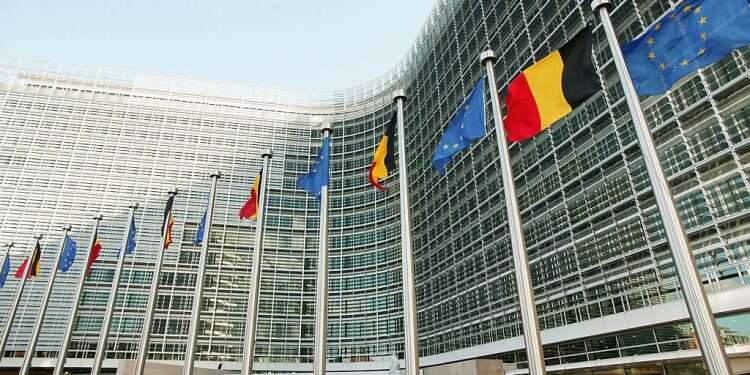The European Union on Thursday said it was worried it may not be possible to strike an agreement to revive the 2015 Iran nuclear deal, urging all sides to seize the opportunity to conclude an accord based on the text on the table.
Follow Israel Hayom on Facebook, Twitter, and Instagram
"I am concerned that we might not make it over the finishing line. My message is: seize this opportunity to conclude the deal, based on the text that is on the table. The time to overcome the last outstanding issues, conclude the deal, and fully restore the (agreement) is now," European Union Ambassador to the United Nations Olof Skoog told the Security Council.
The Doha talks ended after two days without any sign of a breakthrough, months after talks in Vienna among all of the deal's parties went on "pause." In the time since, Iran shut off surveillance cameras of international inspectors and now has enough high-enriched uranium to potentially fashion into at least one nuclear bomb if it chose.
And with Iran and the US blaming each other for the talks' failure, it remains unclear when there will be another round of negotiations.
European Union mediator Enrique Mora on Twitter described as "intense" the two days of talks in Doha.
"Unfortunately, not yet the progress the EU team as coordinator had hoped for," Mora wrote. "We will keep working with even greater urgency to bring back on track a key deal for non-proliferation and regional stability."
However, it remains unclear if there will be another round of talks on the deal, known formally as the Joint Comprehensive Plan of Action. The State Department said that Iran "raised issues wholly unrelated to the JCPOA and apparently is not ready to make a fundamental decision on whether it wants to revive the deal or bury it."
"Indirect discussions in Doha have concluded, and while we are very grateful to the EU for its efforts, we are disappointed that Iran has, yet again, failed to respond positively to the EU's initiative and therefore that no progress was made," the State Department said.
Iran and world powers agreed in 2015 to the nuclear deal, which saw Tehran drastically limit its enrichment of uranium in exchange for the lifting of economic sanctions. In 2018, then-President Donald Trump unilaterally withdrew America from the accord, raising tensions across the wider Middle East and sparking a series of attacks and incidents.
"Iran has yet to demonstrate any real urgency to conclude a deal, end the current nuclear crisis and achieve important sanctions lifting," Richard Mills, Deputy US Ambassador to the United Nations, told the meeting.
Subscribe to Israel Hayom's daily newsletter and never miss our top stories!




